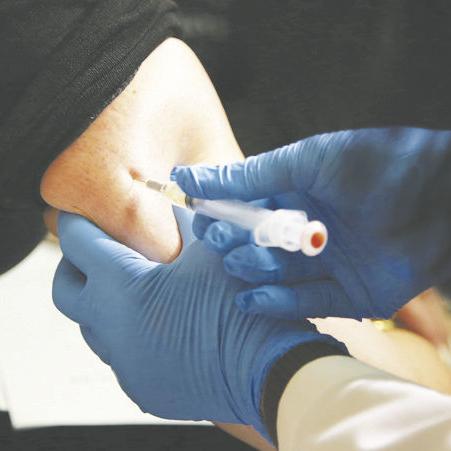Integration of Oral Health and Primary Care: Communication, Coordination and Referral



The Latah County residents who contracted Idaho's first two cases of measles this year have fully recovered, but there's another infection on the rise.
Kathryn Turner, deputy state epidemiologist for the Idaho Department of Health and Welfare, said the department doesn't believe there will be new cases of measles that crop up connected to the two Idaho cases. However, the Treasure Valley is experiencing an outbreak of hepatitis A.
Turner said there have been 26 connected cases of hepatitis A this year. That may only be the tip of the iceberg, because those who contract the disease don't commonly show symptoms. Typically, she said Idaho sees only about five to 10 sporadic cases of hepatitis A over an entire year.
Hepatitis A is a liver disease that is commonly contracted from exposure to contaminated food or person-to-person contact. Turner said some symptoms that do show up are jaundice, aches and a general lack of energy. Untreated, she said the disease can cause long-term liver damage.
Infants are supposed to receive their first dose of the hepatitis A vaccine at about 1 year old, then receive their second dose about six months later. Turner said there is no booster vaccine needed later in life to prevent hepatitis A.
Turner said it is important to vaccinate yourself and your children to protect the vulnerable members of the community who can't be vaccinated. Hepatitis A and measles are contagious. Turner said nine out of 10 people who are not immune and exposed to measles contract the disease, but if you're vaccinated, you're about 97% less likely to catch it.
"Measles is so contagious," she said.
Not everyone can get vaccinated. Turner said people who are receiving treatment that depresses the immune system, such as chemotherapy, radiation therapy or steroids, should not get vaccinated for measles. Those people then rely on the public to be immunized so they don't spread the disease to them.
Idaho law allows parents or guardians to claim exemptions from immunization requirements for their children because of medical, religious or other reasons. According to the Centers for Disease Control and Prevention, Idaho has one of the lowest rates of immunization coverage for kindergarten students, with about 89% of students covered.
About 5.8% of Ada County students have claimed exemptions from the measles vaccine, compared to about 5.3% of Canyon County students, according to data from the Idaho Department of Health and Welfare. Overall, about 8.4% of Ada County and 6.9% of Canyon County students claim an exemption from one or more vaccines.
Measles is so contagious it's difficult to control once an outbreak starts, Turner said. Though there have been only two cases of measles in Idaho this year, she said there have been more than 1,000 cases in 28 states this year. A larger measles outbreak is affecting Europe currently, with more than 25,000 people affected just in Ukraine, according to the Center for Infectious Disease Research and Policy.
Infants are supposed to receive their first measles vaccine at about 1 year old, and then a second dose when they're around kindergarten age. Adults do not need a measles booster.
Turner advised people who are traveling internationally to make sure they and their children are vaccinated for measles. She did not recommend the same for people who are traveling within the United States but said people should talk to their health care provider. Even for infants under a year old, she said babies can receive the first dose of the measles vaccine as young as 6 months.
WHOOPING COUGH
Aside from hepatitis A and measles, Idaho is also seeing a higher-than-normal number of whooping cough cases this year at about 50 so far. Though higher than average, it's still fewer cases than Idaho saw last year, when the state experienced the worst outbreak it's had in about 30 to 40 years, Turner said.
Canyon County saw the worst of last year's outbreak, with about 130 of the more than 150 cases placed within the county. It spread so rapidly, Turner said medical providers had to use a lot of resources to manage it.
"People were scrambling," she said.
Turner said Idaho will likely see more cases later on this year, as whooping cough cases typically spike around July and August. She said common symptoms include a terrible cough that can linger for four to six weeks, as well as other flu-like symptoms, such as fever and headache. The disease is especially devastating for infants.
"They literally cannot catch their breath because they're coughing so hard," Turner said.
Infants are supposed to receive their first dose of the whooping cough vaccine at about 2 months old, but it doesn't fully protect them, Turner said. Follow-up doses are administered at 4 months old, 6 months old, just before 2 years old and then around kindergarten age. She said people then are supposed to get a booster vaccine at around 12 years old.
Turner said being vaccinated for whooping cough is important to protect young children who are not fully protected yet. She said infants who contract whooping cough often catch it from a family member. People can receive a DTaP booster vaccine every 10 years, which protects against whooping cough, tetanus and diphtheria, she said.
"Getting that booster is pretty critical to maintaining immunity," Turner said.
Comments
Post a Comment